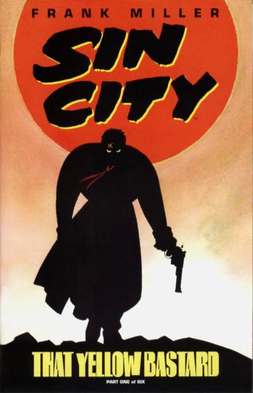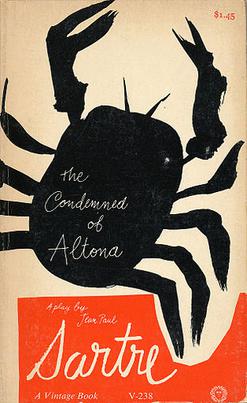
Within Our Gates is a 1920 American silent race drama film produced, written and directed by Oscar Micheaux. The film portrays the contemporary racial situation in the United States during the early twentieth century, the years of Jim Crow, the revival of the Ku Klux Klan, the Great Migration of blacks to cities of the North and Midwest, and the emergence of the "New Negro".

Rebecca Ann Felton was an American writer, politician, white supremacist, and slave owner who was the first woman to serve in the United States Senate, serving for only one day. She was a prominent member of the Georgia upper class who advocated for prison reform, women's suffrage and education reform. Her husband, William Harrell Felton, served in both the United States House of Representatives and the Georgia House of Representatives, and she helped organize his political campaigns. Historian Numan Bartley wrote that by 1915 Felton "was championing a lengthy feminist program that ranged from prohibition to equal pay for equal work yet never accomplished any feat because she held her role because of her husband."

The Scottsboro Boys were nine African American male teenagers accused of raping two white women in 1931. The landmark set of legal cases from this incident dealt with racism and the right to a fair trial. The cases included a lynch mob before the suspects had been indicted, all-white juries, rushed trials, and disruptive mobs. It is commonly cited as an example of a legal injustice in the United States legal system.

The Rosewood massacre was a racially motivated massacre of black people and the destruction of a black town that took place during the first week of January 1923 in rural Levy County, Florida, United States. At least six black people were killed, but eyewitness accounts suggested a higher death toll of 27 to 150. In addition, two white people were killed in self-defense by one of the victims. The town of Rosewood was destroyed in what contemporary news reports characterized as a race riot. Florida had an especially high number of lynchings of black men in the years before the massacre, including the lynching of Charles Strong and the Perry massacre in 1922.

Sin City is a 2005 American neo-noir action crime anthology film directed by Robert Rodriguez and Frank Miller based on Miller's comic book series of the same name. The film stars an ensemble cast led by Jessica Alba, Benicio del Toro, Brittany Murphy, Clive Owen, Mickey Rourke, Bruce Willis, and Elijah Wood, and featuring Alexis Bledel, Powers Boothe, Michael Clarke Duncan, Rosario Dawson, Devon Aoki, Carla Gugino, Rutger Hauer, Jaime King, Michael Madsen, Nick Stahl, and Makenzie Vega among others.

That Yellow Bastard is a six-issue comic book limited series and the sixth in the Sin City series. It was published by Dark Horse Comics in February–July 1996. It follows the usual black and white noir style artistry of previous Sin City novels, with the exception of yellow on Roark Junior late in the story.

The Narrow Margin is a 1952 American film noir starring Charles McGraw and Marie Windsor. Directed by Richard Fleischer, the RKO picture was written by Earl Felton, based on an unpublished story written by Martin Goldsmith and Jack Leonard. The screenplay by Earl Felton was nominated for an Academy Award.
Dirty Hands is a play by Jean-Paul Sartre. It was first performed on 2 April 1948 at the Theatre Antoine in Paris, directed by Pierre Valde and starring François Périer, Marie Olivier and André Luguet.
The Flies is a play by Jean-Paul Sartre, produced in 1943. It is an adaptation of the Electra myth, previously used by the Greek playwrights Sophocles, Aeschylus and Euripides. The play recounts the story of Orestes and his sister Electra in their quest to avenge the death of their father Agamemnon, king of Argos, by killing their mother Clytemnestra and her husband Aegisthus, who had deposed and killed him.

The Springfield race riot of 1908 consisted of events of mass racial violence committed against African Americans by a mob of about 5,000 white Americans and European immigrants in Springfield, Illinois, between August 14 and 16, 1908. Two black men had been arrested as suspects in a rape, and attempted rape and murder. The alleged victims were two young white women and the father of one of them. When a mob seeking to lynch the men discovered the sheriff had transferred them out of the city, the whites furiously spread out to attack black neighborhoods, murdered black citizens on the streets, and destroyed black businesses and homes. The state militia was called out to quell the rioting.

Outrage is a 1950 black-and-white B-movie starring Mala Powers. It was directed by Ida Lupino. Lupino also co-wrote the script, along with the producers Malvin Wald and Lupino's then-husband Collier Young.

Uncle Tom's Children is a collection of novellas and the first book published by African-American author Richard Wright, who went on to write Native Son (1940), Black Boy (1945), and The Outsider (1953). When it was first published in 1938, Uncle Tom's Children included only four novellas: "Big Boy Leaves Home," "Down by the Riverside," "Long Black Song," and "Fire and Cloud." "The Ethics of Living Jim Crow" and "Bright and Morning Star," which are now the first and final pieces, respectively, were added when the book was republished in 1940. The book's title is derived from Harriet Beecher Stowe's Uncle Tom's Cabin, an anti-slavery novel published in 1852.

Willie McGee was an African American man from Laurel, Mississippi, who was sentenced to death in 1945 and executed on Tuesday, May 8, 1951, after being controversially convicted for the rape of a white woman on November 2, 1945. McGee's legal case became a cause célèbre that attracted worldwide attention, as it was roundly decried as a miscarriage of justice in the Jim Crow south.

The Condemned of Altona is a play written by Jean-Paul Sartre, known in Great Britain as Loser Wins. It was first produced in 1959 at the Théâtre de la Renaissance in Paris. It was one of the last plays Sartre wrote, followed only by his adaptation of Euripides' The Trojan Women. The English-language title recalls his formulation "Man is condemned to be free." It is the only one of Sartre's fictional works which deals directly with Nazism, and also serves as a critique of the then-ongoing Algerian War. The action takes place in Altona, a borough of the German city-state of Hamburg.

The Respectful Prostitute is a 1952 French crime drama film directed by Marcello Pagliero and starring Barbara Laage, Ivan Desny and Marcel Herrand. It is an adaptation of Jean-Paul Sartre's 1946 play The Respectful Prostitute. It was shot at the Photosonor Studios in Courbevoie. The film's sets were designed by the art director Maurice Colasson.

Recy Taylor was an African-American woman from Abbeville in Henry County, Alabama. She was born and raised in a sharecropping family in the Jim Crow era Southern United States. In the 1940s, Taylor's refusal to remain silent about her rape by white men led to organizing in the African-American community for justice and civil rights.

In Forsyth County, Georgia, in September 1912, two separate alleged attacks on white women in the Cumming area resulted in black men being accused as suspects. First, a white woman reportedly awoke to find a black man in her bedroom; then days later, a white teenage girl was beaten and raped, later dying of her injuries.
Funnyhouse of a Negro is a one-act play by Adrienne Kennedy. The play opened off-Broadway in 1964 and won the Obie Award for Distinguished Play. The play shared this award with Amiri Baraka's Dutchman, and was influenced by her radical imagination; critics have read it in conversation with both the Black Arts Movement and the Theater of the Absurd. While the play has been produced on stage numerous times, it has been more frequently studied in academic settings than it has been produced.
The lynching of Marie Thompson of Shepherdsville took place in the early morning on June 15, 1904, in Lebanon Junction, Bullitt County, Kentucky, for her killing of John Irvin, a white landowner. The day before Thompson had attempted to defend her son from being beaten by Irvin in a dispute; he ordered her off the land. As she was walking away from him, he attacked her with a knife and she killed him in self-defense with a razor. She was arrested and put in the county jail.

"Zanzibar" is the first episode of the fourth series of the British black comedy anthology television programme Inside No. 9. Written by Steve Pemberton and Reece Shearsmith, the episode was directed by David Kerr and was first shown on 2 January 2018, on BBC Two. It stars Pemberton, Shearsmith, Rory Kinnear, Bill Paterson, Marcia Warren, Hattie Morahan, Kevin Eldon, Tanya Franks, Helen Monks and Jaygann Ayeh. The episode is written entirely in iambic pentameter.
















